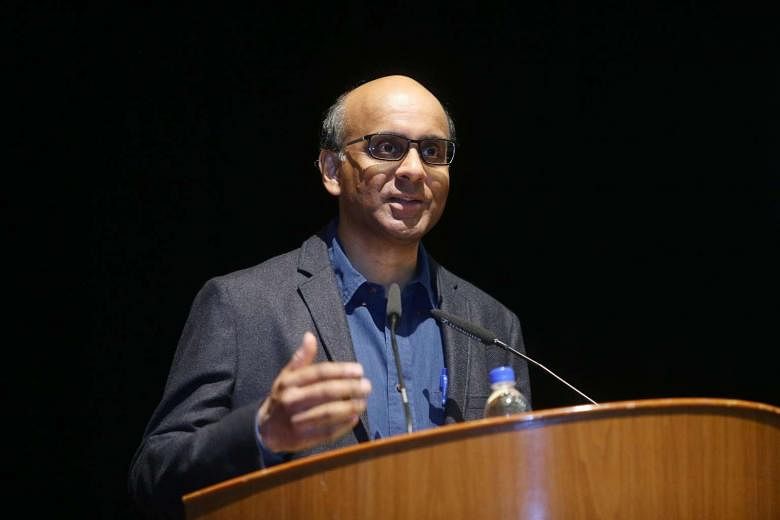Britain's decision to leave the European Union (EU) has raised "profound questions" revolving around politics, Deputy Prime Minister Tharman Shanmugaratnam said on Facebook yesterday.
Markets will react negatively to the news and the loss of growth in Britain and Europe in the next few years will ripple and hurt the world, including Asia and Singapore.
But the reactions "will not be like 2008 when the house came down", he added, referring to the US subprime crisis that led to a global financial crisis which threatened to bring down large financial institutions.
Instead, Mr Tharman said the larger questions have to do with the divisions that led different groups to vote differently.
Many who voted to stay in the EU were young, well-educated, and have good incomes, while those who voted to leave were older, less educated and felt they were losing out, he said.
"Many of the people who voted for Britain to leave Europe, like those in England's industrial cities, may end up being hurt by its economic consequences," he said. "Yet their frustration over their jobs and wages, and their fear of uncontrolled immigration if Britain stayed in Europe, has shaped their votes."
The Brexit vote is emblematic of a "new brew" in politics worldwide, he added, noting the growing appeal of nationalist politics, demagogues and even outright racism - especially in the most mature of democracies.
Growing disaffection with the Establishment and weakening of trust and consensus in society and the centre of politics has led to fringe and extremist parties gaining appeal, he said.
"We do not know where this will lead to, but it cannot mean anything good," he said.
"But to tackle it, the politics of the centre must stay connected to the challenges that ordinary people face and address their need for jobs and security, and a balance in immigration that preserves a sense of identity."
Tackling this problem without turning inward and weakening jobs and society further "is the central challenge everywhere".
Other local politicians also highlighted the economic and political lessons for Singapore.
Minister for National Development Lawrence Wong said the vote is yet "another reminder" Singapore has to stay alert and nimble and keep adapting and innovating to survive and thrive in an uncertain world.
Defence Minister Ng Eng Hen said the political repercussions include the response of Scotland, which is looking to a second independence referendum, and leaves open the question whether other EU nations will hold similar referendums.
"The most important lesson is that change is inevitable and that when it comes, it is the solidarity of a nation's people with each other and their leaders that will pull them through," he said.
Foreign Affairs Minister Vivian Balakrishnan said at a community event that Brexit is unlikely to change the "strong traditional relationship'' between Singapore and Britain in economics, diplomacy and defence.
He noted that almost half of Singapore's investment in the EU goes to Britain. "In the uncertain months and years to come, (Britain) will have to try to re-establish its old ties, its old relationships, that supported its trading and investment, flows both ways."












